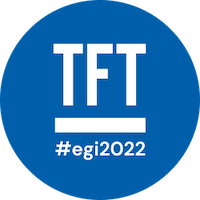Speaker
Description
Citizen Science data is being split across very many different portals, each portal operated by a small community with different APIs for fetching the data programmatically and returning data in a specific structure. Several efforts are done to integrate these disparate projects into useful open datasets. An example in biodiversity is the Global Biodiversity Information Facility dataset that aggregates many data sources. Still, most of these aggregated resources are served by specific thematic APIs. This makes re-use of the data a real challenge, in particular when it comes to interdisciplinary knowledge building where merging data from different themes is required.
In Cos4Cloud we have developed one approach based on the Internet of Things. Our approach – called STAplus – uses an extension to the existing Open Geospatial Consortium standard SensorThings API. STAplus aims to reinforce the FAIR’s aspects of Interoperability and Reusability. To add the necessary elements for considering the citizens and their recognition, we propose a generic data model that supports additional business logic. Because our extended data model is backwards compatible to the existing SensorThings API v1.1, it can be applied to already existing deployments and thereby offering a wide potential uptake. The approach was already validated with Cos4Cloud implementations using use cases such as camera traps and Pl@ntNet data.
In addition, we evaluated this approach to existing biodiversity citizen observatories by conducting a feasibility study using EGI infrastructure where we operated a cloud based service. In this service we hosted a meaningful snapshot of the Natusfera observations (Natusfera is a fork of iNaturalist) and we make that available via STAplus.
I our talk we will introduce the approach and present quantitative results of our feasibility story.
(This work has received funding from the European Union’s Horizon 2020 research and innovation programme under grant agreement no 863463.)
| Topic | EOSC Compute Platform |
|---|

